-
 +28 +1
+28 +1The Amount Of Salt In The Brain Determines Sleep Cycles
Newly presented study discusses salt levels in the brain and how they play a very important role in whether a person is sleeping or awake at any given moment. Professor Maiken Nedergaard from the Center for Basic and Translational Neuroscience at University of Copenhagen says this information could prove quite beneficial in the study of psychiatric diseases …
-
 +41 +1
+41 +1Eating curry may help fight off dementia, new study suggests
Eating curry at least once a week may help to stave off dementia, new research suggests. For perhaps too many Britons, a trip to the curry house is an occasion not associated with improved memory and verbal skills. But a new trial by Australian scientists indicates that a weekly blast of spicy food will keep people sharper for longer in old age.
-
 +32 +1
+32 +1Walking Corpse Syndrome: When The Alive Think They’ve Died
Zombies have become a mainstream way to suspend our disbelief and engage with the land of make-believe. However, they may be walking among us in real life thanks to a rare mental illness called Cotard’s Syndrome. By Jaleesa Baulkman. (May 25, ’16)
-
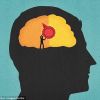 +43 +1
+43 +1Consciousness on-off switch discovered deep in brain
One moment you’re conscious, the next you’re not. For the first time, researchers have switched off consciousness by electrically stimulating a single brain area. Scientists have been probing individual regions of the brain for over a century, exploring their function by zapping them with electricity and temporarily putting them out of action. Despite this, they have never been able to turn off consciousness – until now.
-
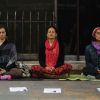 +29 +1
+29 +1People who meditate are more aware of their unconscious brain
People who meditate are more aware of their unconscious brain activity – or so a new take on a classic “free will” experiment suggests. The results hint that the feeling of conscious control over our actions can vary – and provide more clues to understanding the complex nature of free will. The famous experiment that challenged our notions of free will was first done in 1983 by neuroscientist Benjamin Libet. It involved measuring electrical activity in someone’s brain while asking them to press a button, whenever they like, while they watch a special clock that allows them to note the time precisely.
-
 +19 +1
+19 +1There’s No Such Thing as Free Will
For centuries, philosophers and theologians have almost unanimously held that civilization as we know it depends on a widespread belief in free will—and that losing this belief could be calamitous. Our codes of ethics, for example, assume that we can freely choose between right and wrong. In the Christian tradition, this is known as “moral liberty”—the capacity to discern and pursue the good, instead of merely being compelled by appetites and desires.
-
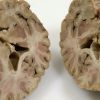 +5 +1
+5 +1A civil servant missing most of his brain challenges our most basic theories of consciousness
Not much is definitively proven about consciousness, the awareness of one’s existence and surroundings, other than that it’s somehow linked to the brain. But theories as to how, exactly, grey matter generates consciousness are challenged when a fully-conscious man is found to be missing most of his brain. Several years ago, a 44-year-old Frenchman went to the hospital complaining of mild weakness in his left leg. It was discovered then that his skull was filled largely by fluid, leaving just a thin perimeter of actual brain tissue.
-
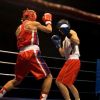 +25 +1
+25 +1"Knockout" Head Injuries Linked to Parkinson's, but Not Alzheimer's
There has long been debate about a link between serious blows to the head and the development of neurodegenerative diseases later in life. Research has made cases for and against a relationship between traumatic brain injuries and neurological ailments such as Alzheimer’s, Parkinson’s and general dementia. Now the question is drawing ever more scrutiny as the alarming extent of these injuries becomes better known—and new research is finally casting some light on this murky and often quietly terrifying topic.
-
 +24 +1
+24 +1Is full-time work bad for our brains?
Don’t do an IQ test after a full week’s work if you are 40 years or older. You could be disappointed. If you’re over 40, working more than 25 hours of work a week could be impairing your intelligence, according to a study released in February by researchers for the Melbourne Institute of Applied Economic and Social Research in Australia. The team conducted reading, pattern and memory tests in more than 6,000 workers aged over 40, to see how the number of hours worked each week affects a person’s cognitive ability.
-
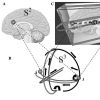 +21 +1
+21 +1The Four-Dimensional Brain?
“The brain is a three dimensional object.” It would seem that this is one of the least controversial facts about the brain, something we can all agree on. But now, in a curious new paper, researchers Arturo Tozzi and James F. Peters suggest that the brain might have an extra dimension… (June 11, 2016 )
-
 +26 +1
+26 +1A molecule called ‘Sandman’ could help solve the ‘mystery of sleep’
Sleep just doesn't make sense. "Think about it," said Gero Miesenböck, a neuroscientist at the University of Oxford. "We do it. Every animal with a brain does it. But obviously it has considerable risks." Sleeping animals are incredibly vulnerable to attacks, with no obvious benefit to make up for it — at best, they waste precious hours that could be used finding food or seducing a mate; at worst, they could get eaten. "If evolution had managed to invent an animal that doesn’t need to sleep ... the selective advantage for it would be immense," Miesenböck said.
-
 +13 +1
+13 +1The perils of being your own doctor
When an experienced physician became convinced he had ALS, none of the specialists he consulted could persuade him he was perfectly healthy. By Mert Erogul.
-
 +34 +1
+34 +1Tracking time can be tricky for children with autism
Children use their sense of time to guess when the school bell will ring, when to pause while chatting with a friend, and how long it typically takes Dad to buy groceries. A good sense of time makes life less unpredictable, and may also smooth out some social interactions. Most children get better at estimating time as they grow. They learn by averaging their experiences — for instance, previous trips to a supermarket or conversational pauses. Some children have an innate sense of time and rely less on this imprecise averaging tactic.
-
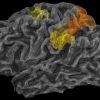 +19 +1
+19 +1Scientists just found the part of our brain that actually gets physics
Many science students might dread the more complex aspects of physics, but far removed from the mathematical equations that define how our physical world behaves, we each have an inner intuitive sense for how things will bounce, wobble, or fall.
-
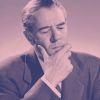 +48 +1
+48 +1The Man Who Woke Up One Morning and Forgot How to Read
A strange case that settled a long, contentious debate about the brain.
-
 +23 +1
+23 +1Psilocybin Shown to Heal and Repair Brain Cells, May Be Promising New PTSD Treatment
In a 1961 address to the UN General Assembly, President John F. Kennedy said, “Mankind must put an end to war before war puts an end to mankind.” These words still hold poignancy today, even beyond the battlefield. Coming home from war, a six-month deployment on a ship, or simply transitioning from a life in uniform to a life without one, can be difficult, and the statistics back it up. It’s estimated that a sobering 22 Veterans commit suicide every day.1 Most of these veteran suicides are related to post-traumatic stress disorder (PTSD), which arises after a trauma in which your life is in danger or you feel that it’s in danger.
-
 +16 +1
+16 +1Scientists might have just seen the building blocks of memories light up for the first time
For the first time, scientists have managed to identify what they believe to be the building blocks of memories - specifically, the neurons that handle the information related to where we are and where we've travelled in the past. By lighting up these building blocks in the brains of mice, it's hoped that we can learn more about the way memories form in our own brains, the researchers behind the experiment say.
-
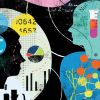 +37 +1
+37 +1When Blind People Do Algebra, The Brain's Visual Areas Light Up
People born without sight appear to solve math problems using visual areas of the brain. A functional MRI study of 17 people blind since birth found that areas of visual cortex became active when the participants were asked to solve algebra problems, a team from Johns Hopkins reports in the Proceedings of the National Academy of Sciences. "And as the equations get harder and harder, activity in these areas goes up in a blind person," says Marina Bedny, an author of the study and an assistant professor in the department of psychological and brain sciences at Johns Hopkins University.
-
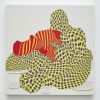 +19 +1
+19 +1Every Body Goes Haywire
It’s inconceivable to most people that this is it—there is no other, underlying condition. The headaches are the condition itself. By Anna Altman.
-
 +13 +1
+13 +1Was Freud right about dreams all along?
Gritty, emotional, smelly and dirty: new evidence supports Freud’s long-debunked theory that sex fuels our dreams. By Patrick McNamara.
Submit a link
Start a discussion




















